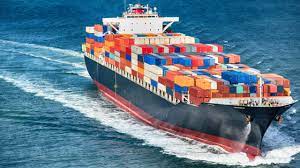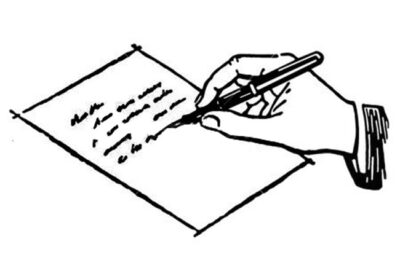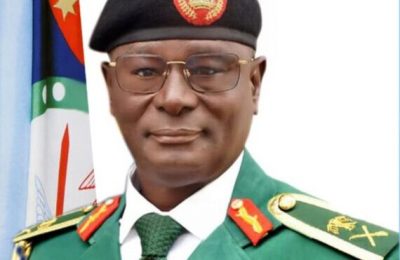
International shipping has had its fair share of disaster, with many lives getting lost to either man-made or nature induced disasters. In this report, TOLA ADENUBI takes a look at the four pillars guiding international shipping and why they came to be.
Since its founding in 1948, the International Maritime Organisation (IMO) has played a key part in the structuring of policy and procedure across the global maritime industry.

With the key goals of improving safety to ships and seafarers as well as ensuring the protection of the marine environment from pollution caused by shipping operations, the IMO regulates international shipping through three major conventions namely: International convention for the Safety of Life at Sea (SOLAS) 1974 and its Protocols; International Convention for the Prevention of Pollution from Ships (MARPOL)73/78 and the Standards of Training, Certification and Watchkeeping (STCW) 1978.
While numerous (lesser) conventions also abound under the IMO, the need for a law protecting the human element of shipping necessitated the passing into law of the Maritime Labour Convention (MLC) in 2006.
SOLAS
Very early in the morning of the 15 of April 1912 in the North Atlantic Ocean, four days into her maiden voyage from Southampton to New York City, the largest ocean liner in service at the time, RMS TITANIC struck an iceberg and sank.
There were an estimated 2,224 people on board when she sank. About 1,500 people died in the disaster.
After the sinking of the Titanic, the following were discovered to have been the major cause of the disaster; the watchmen on duty were fatigued and did not spot the Iceberg until it was too late; The massive size of the ship made it impossible to take evasive action; The lifeboats on board were grossly inadequate; Lack of regulations for effective response to such an incident; and the ship was not designed to stay afloat after such a catastrophic breach of her hull.
The International Conference on Safety of Life at Sea (SOLAS), 1914 was held in response to the Titanic Disaster, thus making the first version of SOLAS to be the 1914 edition while the last version is the 1974 edition.
The recommendations of the conference included lifeboats, lifeboat drills and inspections to ensure the life-saving equipment and crew knowledge were in place and could be effectively deployed should the need arise.
This was the first major industry-wide safety convention. With one of the industry’s main concerns being the safety of crew and personnel on board vessels, SOLAS is generally regarded as the most important of all international conventions.
The international SOLAS convention sets minimum safety requirements for the construction, equipment, and operation of merchant ships.
However, the SOLAS convention does not apply to all ships. Only vessels travelling international waters (excluding warships, cargo ships of less than 500 GT, non-propelled ships, wooden ships, non-commercial pleasure yachts and fishing vessels) will be held accountable to the standards enforced by SOLAS.
All signatory flag states must ensure all ships registered under their flag comply with the standards set out under SOLAS. Certificates are issued to a ship to confirm that these standards have been met.
The SOLAS convention is still maintained by the IMO and is regularly updated and amended to remain abreast of the changing needs, technologies, and risks of the maritime industry.
MARPOL
On the 18th of March 1967, the supertanker SS Torrey Canyon ran aground on rocks off the south-west coast of the United Kingdom. She spilled an estimated 25–36 million gallons (94–164 million litres) of crude oil into international waters.
Attempts to mitigate the damage included the bombing of the wreck by aircraft from the Royal Navy and Royal Air Force.
Hundreds of miles of coastline in Britain, France, Guernsey, and Spain were affected by the oil and other substances used in an effort to mitigate damage.
MARPOL is the main international maritime convention covering the prevention of environmental pollution by ships. MARPOL covers pollution prevention from a routine operational and accidental perspective.
MARPOL initiated changes to ship design and standard of construction, with the aim of mitigating any potential treat of spillage, following incidents at sea.
Unlike SOLAS, the MARPOL convention applies to vessels of all types flagged under a state party of the convention, or that operate within its jurisdiction, regardless of where they sail.
MARPOL remains under the governance of the IMO and has undergone further amendments over the years. Some MARPOL innovations includes: Crude Oil Washing, Segregated Ballast Tanks, Double Hull, Garbage Record Books, Sewage Treatment System and Offshore Reception Facilities.
STCW
In 1978, the Standards of Training, Certification and Watchkeeping 1978 (STCW) Convention established basic requirements of training, certification and watchkeeping for all seafarers on an international level.
Prior to this, any such standards were set by individual governments. With each country abiding by national requirements, standards of training, expected knowledge, and experience varied widely throughout the world.
The STCW sets minimum qualification standards for personnel and crew of all levels on board a ship, including masters, officers and watch personnel. Similar to the other pillars, the main purpose of the international convention is to promote safety at sea, alongside the protection of the marine environment.
The STCW standards apply to all ships greater than 24 meters in length and apply to all crew members. Unlike other conventions, the STCW applies to ships of non-party states when visiting ports of states which are parties to the convention.
The STCW convention is made up of the STCW code and chapters. The code is split into part A and part B. Part A provides mandatory standards regarding the STCW convention and its annex, while part B details recommended guidance.
Like the SOLAS and MARPOL conventions, STCW remains governed by the IMO.
Some of the areas in which standards are established are: Training in and certification from the country of citizenship for the particular position; Endorsement of the certification by the ship’s flag state; Safety training including survival at sea, fire prevention and fighting, first Aid and, in some cases, more advanced medical training; and launching and handling rescue craft.
Other areas of standardization includes: Ship specific familiarisation and training, personal and social responsibilities, security awareness and training, environmental awareness, and medical fitness.
MLC 2006
With the three pillars regulating international shipping already in place, they were however found to be suffused with problems which include: Irrelevant to 21st century shipping, too few ratifications to enter into force, and no provisions for enforcement.
There was also a need to: Stop the proliferation of unilateral legislation, diminish the incidents of confliction laws, reduce confusion, introduction of level playing field, harmonize jurisdictions, maximise ratifications, and carry out a consolidation exercise thus creating a one-stop shop.
Thus, MLC came into force in 2006 and meant different things for different people. For shipowners, the new law will provide the proverbial level playing field that they need in the competitive global enterprise of shipping while for labour unions, it will be a Bill of rights.
For maritime industry regulators, it will be a constant guide and companion and for seafarers, it will provide international protection against exploitation and abuse.
Read Also: Niger gov reaffirms commitment to run open-door policy








